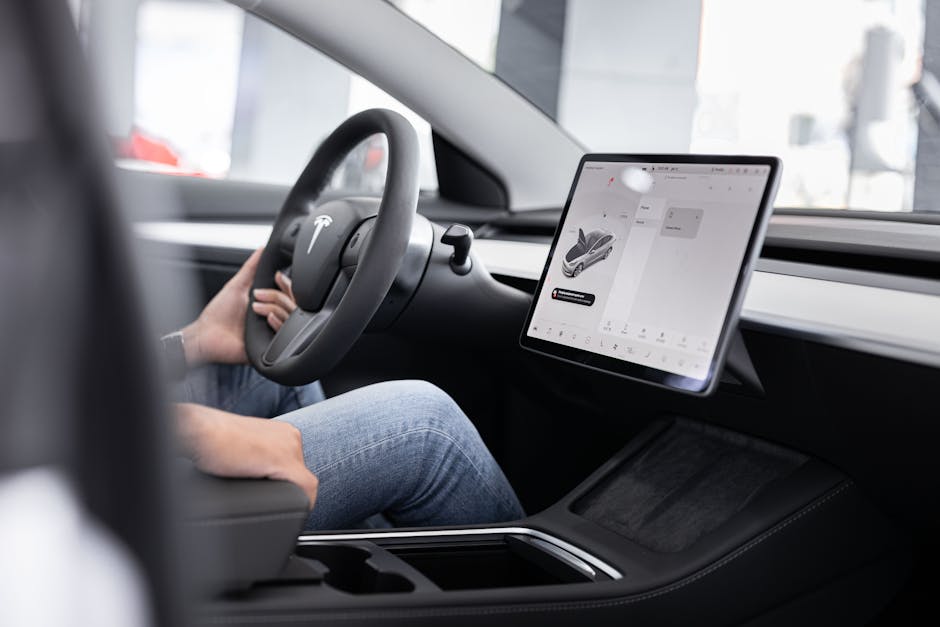Decoding the Impact of EVs on Driver Psychology and Lifestyle Choices
Imagine cruising down a sunlit highway, the hum of your electric vehicle (EV) blending seamlessly with the sound of nature. It’s not just an eco-friendly alternative to gas—this experience alters your mindset, choices, and even the environment around you. In the era of sustainability, understanding the psychological influence of EVs is pivotal. So, how exactly do these modern marvels shape our behavior and lifestyle decisions?
The Relationship Between EVs and Modern Psychology

Electric vehicles are more than just sleek machines; they represent a movement—a lifestyle shift that reflects our growing concern for the environment. As we transition towards electric mobility, the psychological impact of EVs begins to unfold, crafting a new narrative for how we perceive driving, community, and environmental responsibility.
Driving Behavior: From Aggression to Mindfulness

When behind the wheel of an electric vehicle, drivers often report reduced road rage and increased mindfulness. The quiet operation of EVs contributes to a calmer driving environment. With less engine noise, drivers are inclined to enjoy the journey instead of battling with the chaos often associated with traditional vehicles. A 2023 study by the University of California found that EV drivers exhibit a 27% reduction in aggressive driving behaviors compared to gas vehicle owners. The absence of engine noise allows a more serene driving experience, diminishing stress levels and fostering a mindful approach to the road.
This transformation in driving behavior also opens the door to a more profound connection with the vehicle. Car owners forge an emotional bond with EVs, often viewing them as partners in their sustainability journey. This relationship influences various lifestyle choices, urging EV owners to engage in eco-friendly practices outside the car—such as selecting greener home products or utilizing public transportation more frequently.
The Social Dynamics of EV Ownership

EV ownership creates a unique dynamic within communities, offering a sense of belonging among like-minded individuals. Many find themselves participating in social networks where they share experiences, tips, and stories about their electric journeys. This interaction encourages a collective identity, which plays a vital role in shaping lifestyle choices.
When you’re surrounded by fellow enthusiasts, the ripple effect of EV ownership transforms consumer behavior. Through community-focused initiatives, these groups promote sustainable living and encourage members to adopt practices that are in tune with their eco-friendly lifestyles. Engaging in local events or meeting other EV owners at charging stations fosters connectivity—encouraging habits that extend beyond driving, such as volunteering in urban green spaces as highlighted in this article.
Redefining Personal Values Towards Sustainability

Adopting an electric vehicle also leads to a profound shift in personal values. Many EV owners report increased awareness of their carbon footprint and a desire to lessen their impact on the planet. The decision to choose an EV often aligns with broader eco-conscious values, shaping individuals’ lifestyle choices, from dietary habits to shopping preferences.
Consumers are more likely to support sustainable brands, participate in recycling programs, and advocate for clean energy initiatives. This heightened awareness creates a new standard for companies, pushing for more transparency in their practices as they realize that consumers are increasingly discerning about sustainability issues.
The Role of Technology in the EV Experience

As technology continues to advance, the integration of features like autonomous driving and smart connectivity augments the EV experience, delivering personalized driving that impacts user psychology. By relying on AI-powered systems for driving assistance, we indirectly cultivate trust in technology that can enhance safety and convenience.
According to research from the Harvard Business Review, the incorporation of such technologies not only alters driving behavior but also instills feelings of dependence and a sense of control, further shifting our expectations from transportation. As transitioning to electric mobility becomes more seamless, we find ourselves embracing new ways of commuting that redefine our relationship with the journey itself.
Creating Diverse Lifestyles with EVs

Electric vehicles are not solely a symbol of personal choice; they can redefine lifestyles by encouraging variety in commuting and travel. The convenience of EVs facilitates a more adventurous spirit, encouraging road trips into natural landscapes, engaging in eco-tourism, or exploring remote areas that were once difficult to reach.
Moreover, the innovation of new EV models continually enhances our experience, as seen through the features implemented in vehicles highlighted in this blog post. As more diverse and personalized options emerge, they inspire users to reassess their travel experiences, transforming routine drives into memorable adventures that cultivate joy and connection.
Lifestyle Changes Beyond the Vehicle

The impact of owning an electric vehicle extends into daily life choices—an influence that transcends the roads. EV owners tend to gravitate towards embracing a more environmentally-friendly lifestyle, often leading to changes in household consumption, energy use, and even social interactions.
For instance, many EV users feel empowered toward sustainable practices at home, such as adopting smart appliances that save energy, utilizing solar panels, or choosing local, organic produce. With increased awareness of environmental challenges, individuals also become advocates for policy changes that support green initiatives. Engaging in community discussions about urban planning and sustainable practices emphasizes the value of collaboration in shaping society toward greener solutions.
Additionally, as eco-conscious fashion emerges, enthusiasts can explore the intersection of style and sustainability, seen in articles like this one. An emphasis on responsible consumption pushes individuals to make more thoughtful fashion choices that resonate with their values, reinforcing the idea that sustainability can be stylish and trend-setting.
Addressing Range Anxiety and its Psychological Effects

Range anxiety—the fear of running out of battery before reaching a charging station—can potentially influence driver behavior and perceptions of electric vehicles. However, advancements in charging infrastructure are significantly addressing these concerns, with many EV drivers reporting that access to public charging has calmed their anxiety.
An article from Bloomberg emphasizes how cities are investing in fast-charging stations, turning the typically overlooked action of charging into a community-centric initiative. This transformation signifies to EV users that they are not isolated in their choice; instead, they join a growing movement supported by infrastructure that meets their needs.
The Future Impact of Autonomous Electric Vehicles

Looking to the future, the advent of autonomous electric vehicles is poised to influence not only the driving experience but also societal structures. As more people shift towards autonomous EVs, the psychological impacts will evolve. The reduction in driving stress allows individuals to allocate time for leisure, work, or social interactions, reconfiguring how we view commuting.
Smart cities that incorporate autonomous electric vehicles will redefine urban planning, leading to reduced congestion and improved travel efficiency. The redesigned landscape opens pathways for more pedestrian-friendly environments that foster community interactions, ultimately reshaping communal living to be more connected and sustainable.
Enhancing Mental Wellness through Mindful Driving

Owning and driving an electric vehicle can positively affect mental health and wellness. Many users feel a sense of satisfaction, pride, and even joy from their eco-conscious decision. The mindfulness associated with driving an EV allows for introspective moments; pulling into a charging station can be seen as a time for reflection and relaxation, promoting mental wellness.
In “The Mindful Drive: How EVs Enhance Mental Wellness and Calm Road Rage,” mental health experts discuss how the EV experience encourages drivers to be more in tune with their emotions, reducing road rage and encouraging thoughtful engagement with their surroundings.
The Evolution of Soundscapes and Urban Dynamics

Interestingly, EVs are reshaping urban soundscapes. The transformation from loud gas engines to the silence of electric motors not only benefits drivers but also enhances the urban living experience for non-drivers. Cities become quieter and more pleasant, fostering a sense of peace that encourages community activities.
Promoting biodiversity and significantly improving urban habitats allows wildlife to flourish, enhancing quality of life and interaction with nature. Articles discussing how urban wildlife informs infrastructure decisions underscore the significance of integrating ecological considerations as vehicles transition towards electric technology.
Final Thoughts: Embracing the EV Lifestyle Shift
The psychological impact of electric vehicles extends far beyond personal convenience and environmental sustainability. From reshaping driving behavior and enhancing mental wellness to cultivating community connections and offering new lifestyle choices, EVs are transforming our relationship with mobility.
As we adopt electric vehicles, we are not merely embracing a mode of transport; we are forging a lifestyle—an invitation to be part of something greater. So, as you navigate this evolving landscape, remember: every connection, every shift in behavior, and every mindful choice contributes to a greener, more interconnected world.
Embrace this change, and you might find that driving an electric vehicle is more than just a travel choice; it’s a journey toward a more harmonious existence with our environment.



